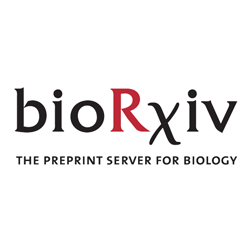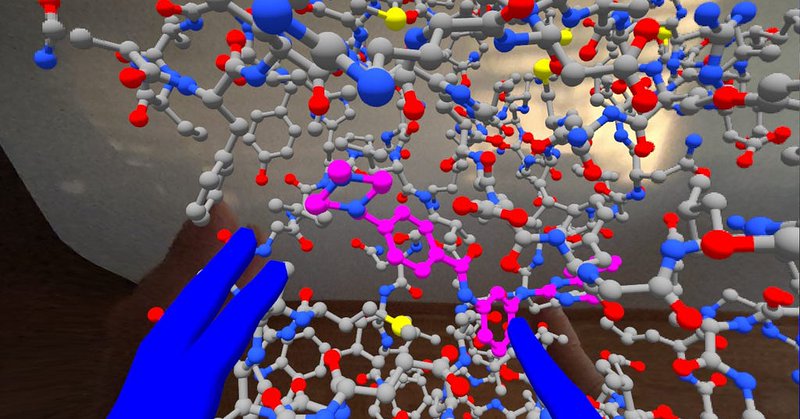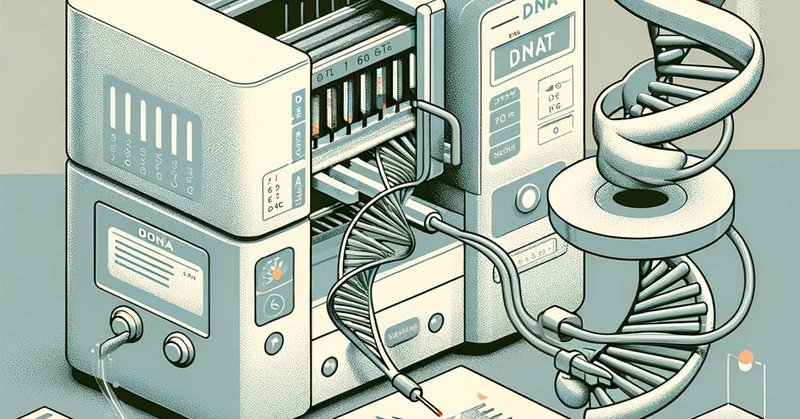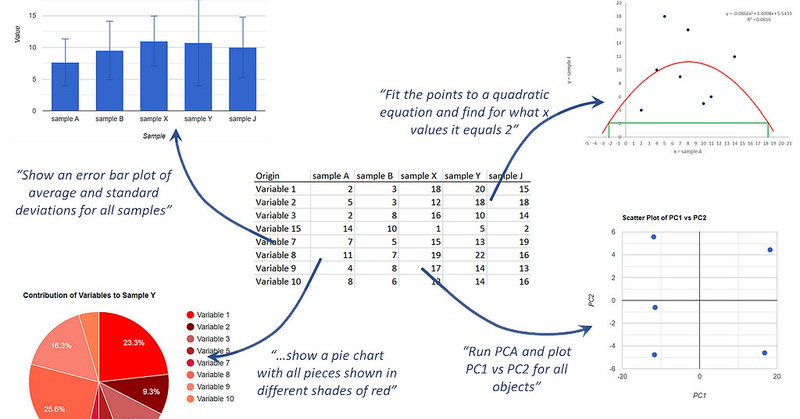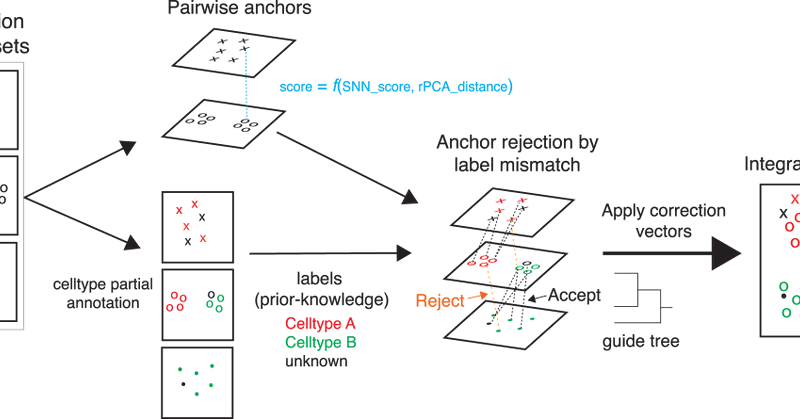
Nexco Analytics
@nexcoanalytics
Followers
83
Following
121
Media
11
Statuses
145
Revolutionizing Life Sciences through Artificial Intelligence
Lausanne, Switzerland
Joined August 2021
Congrats to both #Startupfit ventures! 👏👏 FIT supports two innovative projects: TWIICE and Nexco Analytics https://t.co/IKn9Mujis5
#VDtech @twiice_official
0
1
2
If you missed our blog last week: we covered how the rapid increase of data in Life Sciences allows scientists to train larger and better AI models. Those are now capable of predicting cell types, drug response and even genetic perturbations. Check it out: https://t.co/v47wmTwQSr
nexco.ch
Imagine an AI system with so much “knowledge” about biology, that it can seamlessly integrate and analyze vast amounts of genomic, transcriptomic, proteomic, and other -omics data, even mixed...
0
0
1
Interesting study on second-gen cell-type deconvolution from @Francesca_Fin_ It benchmarks tools using diverse data, showing their strengths and limitations. Check out omnideconv for better deconvolution methods #bioinformatics #rnaseq #deconvolution
https://t.co/MPoww6foZF
biorxiv.org
In silico cell-type deconvolution from bulk transcriptomics data is a powerful technique to gain insights into the cellular composition of complex tissues. While first-generation methods used...
0
2
1
We'll be at @FutureLabs_Live on June 26-27 Pass by booth #S228 to learn how we can boost your AI ! #AI #machinelearning #datascience #genomics #cancer
0
1
0
🕶️🚀Today we cover HandMol! A tool developed at EPFL which enables manipulating and exploring molecular systems in an immersive environment in augmented reality ! Read more and check the video for a demo: #VR
https://t.co/uGj39Of4Ms
nexco.ch
When looking at molecular structures, and especially when trying to explore their conformations and interactions interactively, computer systems based in flat screens and keyboard-mouse combinations...
0
2
2
🚀 New blog post! Discover how scRNA-seq and spatial transcriptomics are shaping biology and precision medicine with tools like predicTCR from @Platten_lab and integrative single cell methods from @LongCai_Lab
https://t.co/qbeeEO6mza
nexco.ch
Through bioinformatics, where data processing and analysis techniques are in continuous evolution as the experimental methods to explore the -omics advance, groundbreaking innovations continue to...
0
1
0
https://t.co/PhS2Sio6Nd Comparison of Spatial Transcriptomics Technologies across 6 Cancer Types: VISIUM, CytAssist, CosMx, Xenium, and CytAssist Protein on Serial Sections from Six Human Tumors. Thx @SergiCervill, …, @eportacangen, @ManelEsteller
#bioinformatics #singlecell
biorxiv.org
Spatial biology experiments integrate the molecular and histological landscape of tissues to provide a previously inaccessible view of tissue biology, unlocking the architecture of complex multicel...
0
0
0
Alphafold3 is here and we tested it! Dive into our latest blog post to discover how it enables molecular docking and explore its implications for drug design and the journey toward treatments. #AlphaFold @GoogleDeepMind
https://t.co/NnjbPdAugQ
nexco.ch
You know at Nexco we are always on the lookout for groundbreaking innovations in bioinformatics, in order to keep you informed and ourselves updated with the latest technologies that can help you in...
0
1
3
If you follow our blog, you know that transposable elements (TEs) play crucial roles in genome regulation and can lead to diseases. However, their repetitiveness makes them hard to study. Find out more about how to analyze them in today’s blog
nexco.ch
Transposable elements, or so-called “jumping genes,” are highly repetitive sequences contributing to around half of the human genome. This vast ocean of transposable elements has countless roles in...
0
2
2
Looking forwards for #SwissBiotechDay 2024 in Basel Come meet Nexco Analytics at booth #19 ! @SwissBiotech
https://t.co/Ch04uwWHW2
swissbiotechday.ch
0
0
2
Long-read sequencing has enabled us to explore the repetitive parts of genomes, often called the dark genome, revealing its regulatory roles. Discover these techniques, by @nanopore or @PacBio and why they were named Nature Methods of the Year in 2022! https://t.co/fVgHotRNek
nexco.ch
Long-read sequencing has transformed genomics, transcriptomics, and epigenomics by illuminating the dark side of the genome previously missed with short-read sequencing approaches. Highly repetitive...
0
0
0
Here we are at another AMLD Great talks ahead. Looking forwards to get started ! #AMLDEPFL2024
0
1
0
If you've ever wondered about the potential outcomes of training an AI to understand the central dogma of biology, take a look at our latest blog post and meet Evo - an AI modeling DNA, RNA and protein https://t.co/74L27xlzgM
nexco.ch
In a groundbreaking effort to what we can summarize as “have a computer understand the entirety of the central dogma of molecular biology and everything that arises from it”, a complex group of...
0
0
1
Long considered 'junk DNA', the repetitive genome's role in #cancer is now being unveiled thanks to the advent of next-generation sequencing #NGS! Discover more about transposable elements and the 'dark side' of our genome in our latest blog: https://t.co/PZaOU1pjXb
nexco.ch
Welcome to the dark side of the genome ─ transposable elements. These repetitive sequences comprise around half of the human genome (1), and their intricate control contributes to countless aspects...
0
3
2
Today in our blog we cover STACAS: a new semi-supervised method for #scRNAseq integration from @carmonation lab. Built on Seurat's anchor method, it allows batch correction and integration of datasets from multiple sources.
nexco.ch
The integration of single-cell transcriptomics data coming from different experiments and individuals is at the core of data analysis, but critical and challenging due to the presence of technical...
0
2
1
In our new blog post, we explore how Large Language Models (#LLMs ) like #ChatGPT are used in data analysis, molecular structure and even medicine! Check it out now:
nexco.ch
In a recent blog post (“Large Language Models like ChatGPT Begin to Permeate Bioinformatics”) we delved into the integration of ChatGPT-like AI models into bioinformatics pipelines, unveiling new...
0
1
0
@nexcoanalytics moved from @EPFL to @BiopoleLausanne today Being #Bioinformatics / #Genomics / #DataScience specialists in life sciences, with most customers in the lemanic region, we’re looking forward to increase our collaborations within the Biopole community
0
3
5
Happy to share the peer-reviewed version!⛺️ Now including additional analyses of i) impact of celltype composition imbalance across samples, and ii) noise in celltype labels on integration performance. Thanks to reviewers & editor for constructive feedback https://t.co/DU0PGRLNnH
nature.com
Nature Communications - Batch effects hinder multi-sample single-cell data analyses. Here, authors present STACAS, a scalable single-cell RNA-seq data integration tool that uses prior cell type...
In scRNA-seq analysis, "overcorrection" of batch effects is a frequent cause for loss of important biological variability. Using prior celltype knowledge is a powerful way to limit overcorrection and should be more common practice. Sharing new preprint! https://t.co/j9qB7kLumH
11
33
146
Discover our new sequencing data analysis tool. Transform your data into insights with our comprehensive platform—from raw data to interactive results. Explore more: https://t.co/tFmeDS4pyi
https://t.co/s2k9SjuMyD
#DataScience #Bioinformatics #Genomics
nexco.ch
As Next Generation Sequencing (NGS) technologies have advanced, we’ve seen a dramatic reduction in costs and a corresponding surge in data volume. What once cost millions of dollars to sequence a...
0
0
1




